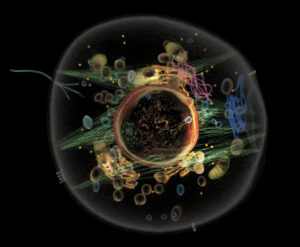Fight, flight or freeze
Manipulating brain switches could change our responses to fear.
When you feel threatened, do you hide, freeze or stand your ground?
It turns out that two small clusters of adjacent nerve cells in your brain are responsible for your reactions and could be manipulated to change them.
While exposing mice to perceived overhead threats, Stanford scientists were able to elicit timid or bold behavior in response to the threat by targeting and stimulating the two nerve cell clusters.
“This opens the door to future work on how to shift us from paralysis and fear to being able to confront challenges in ways that make our lives better,” said Andrew Huberman, PhD, associate professor of neurobiology and of ophthalmology and senior author of a paper describing the research, published online May 2 in Nature.
